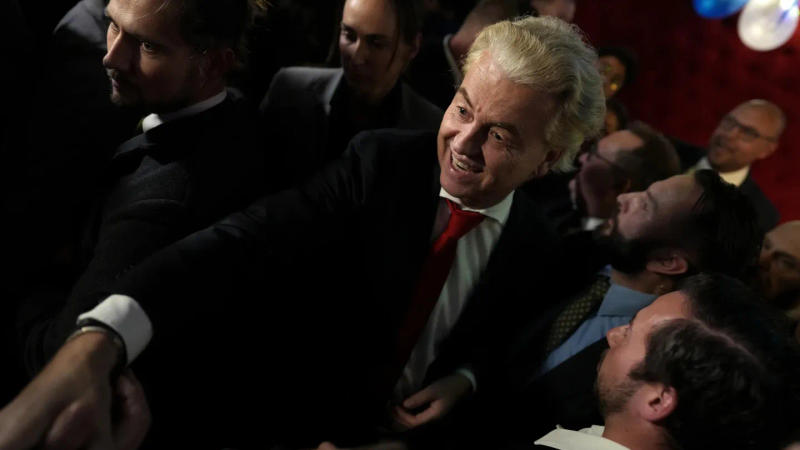Published 09:00 IST, March 14th 2024
Far-Right Dutch Leader Geert Wilders Abandons PM Bid Due to Lack of Support From Coalition Partners
Far-right Dutch politician Geert Wilders admitted that he will not be the next PM of the Netherlands after his party struggled to form a coalition government.

Amsterdam – Far-right Dutch politician Geert Wilders whose Freedom party (PVV) shocked the world by winning the election in the Netherlands last year, admitted that he will not be the next Prime Minister of the country. Wilders reasoned that while his party garnered the highest number of votes, it is still struggling to formulate a coalition government. The Dutch leader took to X, formally known as Twitter to express his frustration. The populist party, PVV won 37 seats which was well short of a majority in the 150-seat parliament.
“I can only become Prime Minister if ALL parties in the coalition support it. That was not the case. I would like a right-wing cabinet. Less asylum and immigration. Dutch on 1,” Wilders wrote on X, formally known as Twitter. “The love for my country and voter is great and more important than my own position,” he added. In a subsequent tweet, the Dutch politician expressed optimism regarding what lies ahead. “And don't forget: I will still become Prime Minister of the Netherlands. With support from even more Dutch people. If not tomorrow then the day after tomorrow. Because the voices of millions of Dutch people will be heard!” he wrote on Thursday. After Wilders won the November elections, he held talks with potential right-wing allies.

However, many of his allies refused to form a coalition with him, calling his manifesto pledges “extreme”. Amid the chaos, the centre-right NSC party, which Wilders needed to form a coalition government with made it clear that it would not accept Wilders as the prime ministerial face. Last month, Pieter Omtzigt, leader of the NSC party, walked out of talks about forming a coalition government with PVV. Omtzigt called out Wilder’s “unconstitutional” views on Islam and stated that the Dutch leader's spending proposal was “unaffordable”.

Is the Far-right movement dying in Europe?
After multiple failed coalition talks Wilders has vowed to “put in the freezer” his most controversial proposals such as the closure of mosques and banning the Quran. However, he strongly condemned the pro-Palestinian demonstration that has engulfed the country and continues to pursue his “Dutch first” rhetoric, The Financial Times reported. Wilders’ failure to become prime minister is the latest of several setbacks the far-right movement in Europe has witnessed recently. Last week, Portugal's far-right Chega party has hit out at efforts by its mainstream rivals to keep it out of power after coming third in the recent general election. Meanwhile, in Spain, the hard-right Vox party that came third in last year's general elections failed to secure power.
Updated 06:59 IST, April 9th 2024




